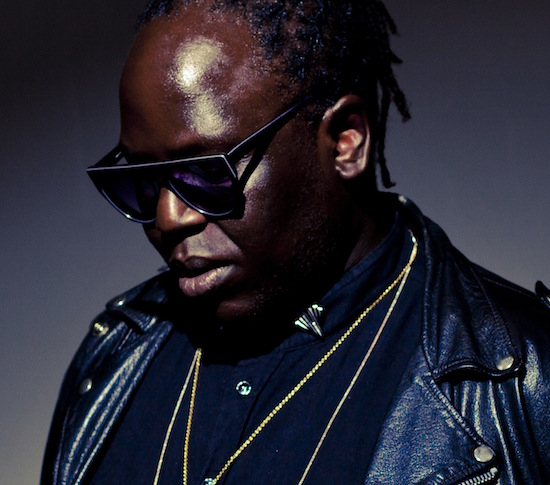Photograph courtesy of Phil Sharp
Dave Okumu and music go way back. Sparked by a youthful immersion in the worlds of alien funk stars like Prince and Grace Jones, his illustrious career as a musician, writer and producer bears the hallmarks of a true journeyman. Indeed, with a life so enmeshed with music, Okumu naturally baulks from the notion of quantifying his passions, remarking, "Lists are by their very nature reductive, and there’s a part of me that resents having to do a list." Nevertheless, the guitarist has no qualms discussing how various records have shaped his artistic output, as this Baker’s Dozen spanning swampy soul, experimental electronica and Krautrock will attest.
Okumu’s schedule is a hectic one. Aside from working on The Invisible’s upcoming album, Okumu has been busy producing a new record from Rosie Lowe, touring in Floating Points’ live band and immersing himself in a slew of other writing and production commitments. His most pressing commitment however is just round the corner. Pieces Of A Man: The Gil Scott-Heron Project found its gestation two years ago when Okumu was asked by Convergence festival curator Glenn Max to be musical director for a retrospective concert on the work of the iconoclastic spoken word artist. The thrust of the project will be a reinterpretation of Scott-Heron’s material by British artists, as Okumu says: "An obvious path to go down would be to do American hip-hop culture, all those amazing artists who have been influenced by Gil Scott-Heron, but Glenn was more interested in a British perspective. He had this idea of giving the show a particular aesthetic, giving it a production, and maybe that’s why he wanted to work with a musician/producer/artist-type."
With a roll call of musicians handpicked by Okumu from the more interesting side of British popular music, including vocal contributions from Jamie Woon and Anna Calvi and musical input from Floating Points, Pieces Of A Man presented Okumu with an opportunity to honour his influence whilst stretching himself creatively: "Apart from the fact that I’m really inspired by Gil Scott-Heron, I’m also looking for creative challenges and things that’ll take me outside of my comfort zone, and it felt like a really unique opportunity."
Talking to Okumu one gets the refreshing sense of a musician still in awe of the creative milieu he inhabits, as is shown by his varied output: "Every other day I’m working with an artist in a writing capacity and exploring album possibilities, always meeting amazing people."
Pieces Of A Man: The Gil Scott-Heron Project will be performed at the Roundhouse on March 13 as part of Convergence festival; for full details and tickets, head here


